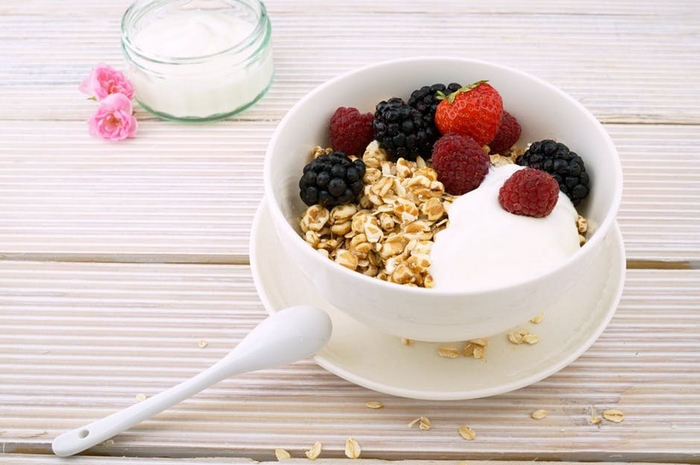Experts often argue for the importance of achieving balance in your life. Whether that is an emotional balance, a balance between your work and social life, activity, and passivity, sleep, and so much more, finding a middle ground seems to be the key, and your nutrition is no exception. But what is balance?

Your dictionary will tell you that it’s an even distribution of weight enabling someone or something to remain upright and steady. While it might seem irrelevant to the topic of diet at first glance, this definition can perfectly sum up all that you need for a healthy eating regime. Let’s see how you can apply this basic principle to your diet and simplify the notion of balanced nutrition!
Why Amount Takes Precedence?
Although there are several factors to consider for true balance in your nutrition, the amount of food plays a key role in achieving it. This is where counting calories steps in to save the day, because no matter how healthy the food on your menu is if you go overboard with the amount, your body will store the excess nutrients as fat.
Since everybody is different, your calorie intake will vary depending on your gender, age, height, current weight, fitness level, overall health and your goals. Even if you’re simply trying to maintain your current weight, counting calories is a perfect way to keep track of what helps you achieve that balance, and prevent yourself from gaining or losing kilos.
Macros, Micros, and Density
Fortunately or not, calories are not created equal. This means that your meal can be full of empty calories, with little nutritional value, thus depriving your body of essential elements for proper functioning and health. You might feel full and have your energy fuel on point, but not much more than that.

That’s why your next key step in achieving a balanced diet is opting for nutrient-dense foods that bring value to your meal, in addition to ensuring your calorie intake. Counting macronutrients can be a bit of a hassle, but having a general idea of how you should allocate your carbs, fats, and proteins in each meal will be more than enough to increase your chances of a balanced nutrition. Athletes and people with hectic lives could benefit from monitoring their macros, in order to supplement when necessary, whether with whey-based nutritious protein drinks, or a delicious fruit smoothie. On the other hand, those looking to shed a few pounds might benefit from weight loss pills, which will help them stay on track with their calories and goals.
Vitamins and minerals, also known as micronutrients, are equally vital for having a resilient immune system and a healthy body because they are the building blocks of your every organ. Naturally, our bodies prefer foods that are rich in these tiny, but powerful elements and the best news is, foods that are nutrient-rich have a low-calorie count, leaving plenty of room to consume other foods, more to your preference. But bear in mind that micronutrient deficiency can cause numerous issues, varying all the way from lowered immune response, an overall fragility of your body to a greater risk of chronic and degenerative diseases.

To sum up, opting for nutrient-dense foods will provide you with plenty of macro and micronutrients alike, and give you the freedom to also eat what makes you happy.
Tailor your Menu to Serve your Goals
Food servings will vary from person to person, but to have a general idea of your well-balanced daily menu, about 25% of your meals should be fruits and vegetables, 25% whole-grain cereal, 20% dairy products, 10% meat, and the remaining 20% leaves room for playing with your food, quite literally!
To put it simply, as long as 80% of your meals come from these healthy sources, the rest can be made up of foods that will account for the rest of your calories, but also ones you crave for. However, no sane dietitian would recommend any amount of processed foods, trans-fats, and unhealthy sugars, so bear in mind that the last 20% should also be based on healthy choices as much as on your personal preferences.

Portioning and timing will depend on what you would like to achieve, your general lifestyle and your health. A good rule of thumb is to keep your meals proportionate and in accordance with your natural daily rhythm, so as not to disrupt your activities, but fuel your energy and keep you full and alert.
A balanced diet is the cornerstone of a healthy lifestyle, as it supports a strong immunity, increases your energy levels, boosts regenerative processes in your body, restores hormonal balance, helps healthy weight management, prevents numerous diseases and gives you a chance to enter your old age vital and strong, to name a few. Follow these simple guidelines for a balanced nutrition and enjoy your every meal to the fullest!
Samantha has a B.Sc. in nutrition and has spent two years working as a personal trainer. Since then, she has embarked on a mission to conquer the blogosphere. When not in the gym or on the track, you can find her on Ripped.me, or in a tea shop.
